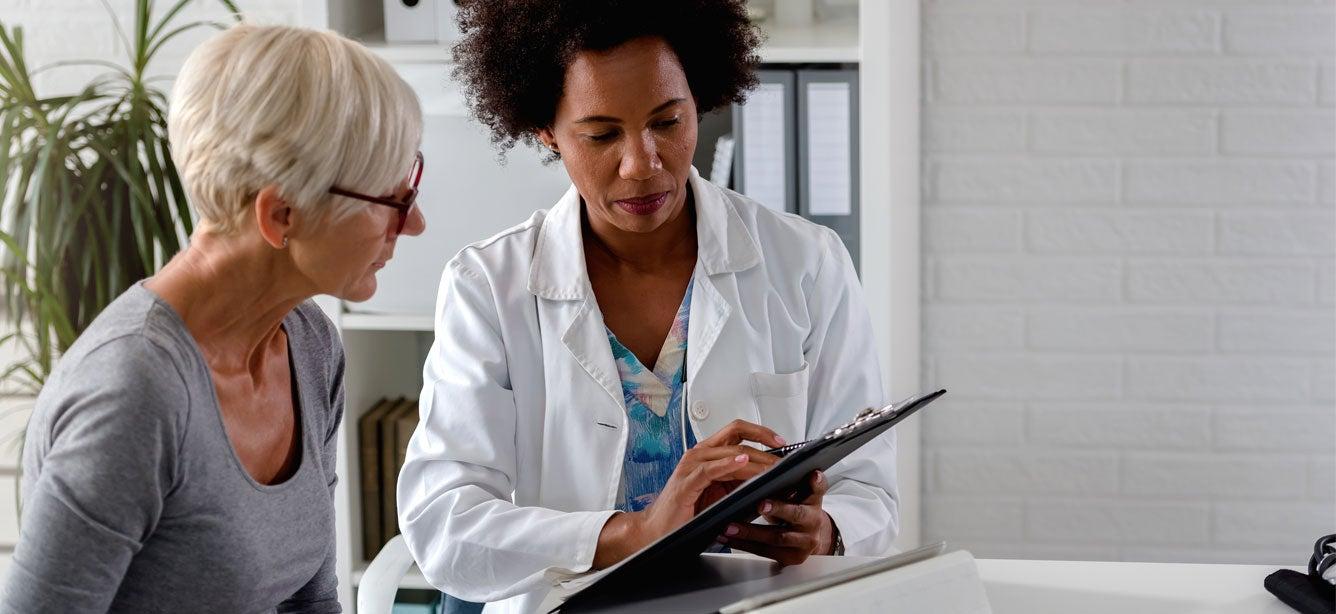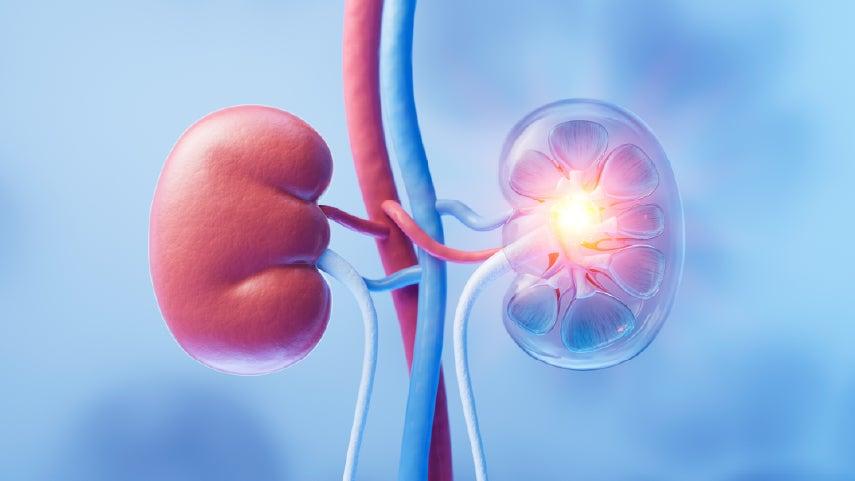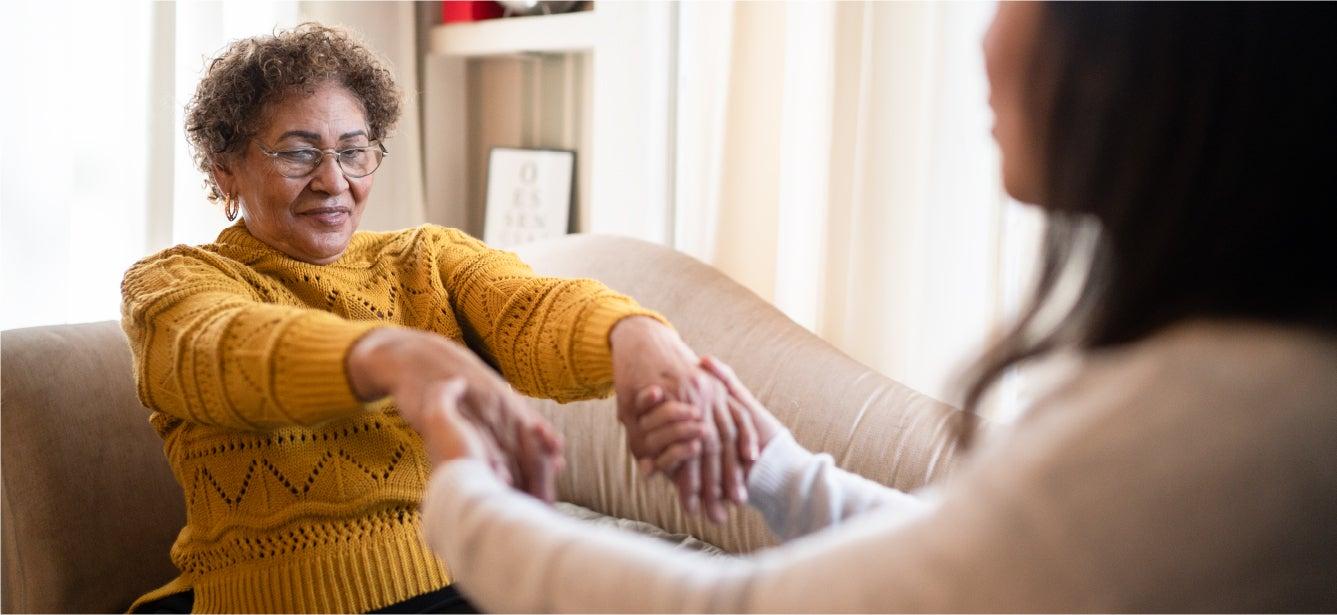Living Better with Parkinson's Disease: What to Do for Yourself or a Loved One
5 min read

Related Topics
Every six minutes, according to a recent study, someone in the U.S. receives a new Parkinson’s disease (PD) diagnosis—that’s 90,000 people diagnosed with PD every year.1
This new incidence rate is 1.5 times higher than the previous estimate of 60,000 people diagnosed with PD annually. The study also found that:
- Age is the primary risk factor for PD and incidence increases with age, especially in those 65 and older.
- Men have a higher incidence of PD than women at all ages.
- Certain geographic regions have higher incidence rates of PD. These regions include the Rust Belt (parts of the northeastern and midwestern U.S. that previously had significant industrial manufacturing), Southern California, Southern Texas, Central Pennsylvania, and Florida.
April is Parkinson’s Awareness Month. This month, the Parkinson’s Foundation encourages you to take 6 minutes to learn how you can live better with PD. This article covers key topics and resources for people with Parkinson’s and their care partners, along with ways you can take 6 for yourself or a loved one.
Care after a Parkinson's Disease diagnosis
Receiving a PD diagnosis and understanding your next steps can feel daunting but learning more about the disease, setting clear personal goals, and starting to build your PD care team can make the diagnosis feel more manageable.
A key step in educating yourself about PD is understanding the available treatment options. There is no standard, one-size-fits-all treatment for Parkinson’s and treatment plans are tailored to an individual’s needs.
Many people with Parkinson’s use medications to treat dopamine deficiency in the brain, a common cause of many Parkinson’s symptoms. Consult your healthcare provider to find which medication or combination of medications will be best for you in your individual treatment plan. Remember that medication is only one part of the PD care plan. PD treatment may also include physical therapy, occupational therapy, speech therapy, or psychotherapy depending on your specific symptoms and personal priorities.
Take 6 minutes to explore newly diagnosed resources to get started on your journey to living well with Parkinson's disease.
Lifestyle and Parkinson's Disease
It is important to take exercise into consideration when building your PD treatment plan. Exercise can help maintain or improve balance, mobility, and flexibility, and ease PD non-movement symptoms like depression and constipation. According to Parkinson’s Foundation research, establishing 2.5 hours a week of physical activity can help with symptom management and slow decline in quality of life.
A nutritious, balanced diet is also important for people living with PD. Some foods may help ease symptoms and brain health, while others can affect the way medications work. For example, anti-inflammatory foods like rosemary, oily fish, dark leafy green vegetables, and soy products and antioxidant rich fruits like blueberries and raspberries may promote brain health. Nutrition adjustments can help ease some of PD’s most common symptoms including constipation, urinary incontinence, fatigue, and sleep difficulties.
This April, take 6 minutes to find a fun, healthy recipe. Nutrious foods can help you live better and be delicious, too.
What research is disovering about Parkinson’s Disease
Scientific and clinical research is helping to close knowledge gaps and improve care when it comes to Parkinson’s. Research is critical to helping physicians and scientists better understand symptoms and disease progression, find new treatments and medications, and enhance quality of life for people with PD.
Genetic research is one such promising research avenue. Uncovering the biological and genetic pathways that cause PD can help researchers understand why people with Parkinson’s have different symptoms and experiences, and also can help clinicians determine whether patients are eligible for clinical trials for PD treatments.
To make genetic testing and counseling more accessible, the Parkinson’s Foundation launched PD GENEration, a landmark initiative offering genetic testing and counseling at no cost. Participating in PD GENEration can help improve your understanding of your symptoms and diagnosis through genetic counseling, inform you about your family’s risk for Parkinson’s and aid in future research to identify new treatments.
Take 6 minutes to learn more about the benefits of participating in research.
The importance of staying connected
Connection and community are vital to living well with Parkinson’s. There are more than 1 million people in the U.S currently living with PD—this number is estimated to reach 1.2 million by 2030. Get involved with the PD community and build your support network by finding PD-specific wellness and exercise classes or joining a local support group.
Take 6 minute to get connected to your PD community. Find your local Parkinson’s Foundation chapter or register for an in-person or virtual education event.
Take action for Parkinson’s Awareness Month
Every 6 minutes, someone in the U.S. will be newly diagnosed with PD. During this Parkinson’s Awareness Month, take time to raise awareness on behalf of the 90,000 people who are diagnosed with Parkinson’s each year.
How to take action in 6 minutes:
- Sign up for an Expert Briefing webinar to learn about the latest PD research.
- Call the Helpline at 1-800-4PD-INFO (1-800-473-4636) or email Helpline@Parkinson.org to get answers to your PD questions and referrals to local health professionals.
- Submit a My PD Story about your connection to Parkinson’s as a person with PD, care partner, health professional, or member of the PD community.
For more information about Parkinson’s Awareness Month, visit Parkinson.org/Awareness.
Sources
1. A.W. Willis, et al. Incidence of Parkinson's Disease in North America. npj Parkinson's Disease. Dec. 15, 2022. Found on the internet at https://www.nature.com/articles/s41531-022-00410-y




